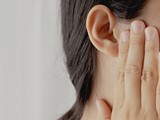The Most Effective Tinnitus Treatments Today: A Comprehensive Guide

Tinnitus, characterized by a persistent ringing or buzzing in the ears, affects millions of people worldwide.
This condition can range from a mild annoyance to a debilitating issue that significantly impacts quality of life. While there is no definitive cure for tinnitus, various treatments and lifestyle changes can help manage the symptoms effectively.
In this article, we'll explore the most effective tinnitus treatments available today, including medical treatments, lifestyle changes, and alternative therapies. We'll also delve into personal perspectives and experiences to provide a holistic view of managing tinnitus.
Medical Treatment Options
Medical treatments for tinnitus focus on managing symptoms and improving the overall quality of life for sufferers. These tinnitus treatments include hearing aids, sound therapy, cognitive behavioral therapy, medications, and tinnitus retraining therapy.
Hearing Aids
One of the most common medical treatments for tinnitus is the use of hearing aids. Hearing loss often accompanies tinnitus, and hearing aids can help by amplifying external sounds, which can mask the internal ringing or buzzing. Modern hearing aids come with tinnitus masking features that emit low-level white noise to help reduce the perception of tinnitus.
Sound Therapy
Sound therapy involves using external noise to alter the perception of tinnitus. This can be done through devices like white noise machines, hearing aids with masking features, or specialized sound therapy devices.
Cognitive Behavioral Therapy (CBT)
Cognitive Behavioral Therapy (CBT) is a psychological approach that helps individuals manage their tinnitus by changing the way they think about and react to the condition. CBT doesn't eliminate the tinnitus sounds but teaches coping strategies to reduce the distress they cause. Studies have shown that CBT can significantly improve the quality of life for tinnitus sufferers.
Medications
While there are no FDA-approved drugs specifically for tinnitus, certain medications can help alleviate the symptoms. Antidepressants and antianxiety medications, such as amitriptyline and alprazolam, have been used to reduce tinnitus-related distress. Additionally, some patients find relief with the use of steroids or anti-inflammatory drugs if their tinnitus is linked to an underlying inflammatory condition.
Tinnitus Retraining Therapy (TRT)
Tinnitus Retraining Therapy (TRT) combines sound therapy with counseling. The goal is to retrain the brain to perceive tinnitus as a neutral sound, thereby reducing its psychological impact. TRT typically involves wearing a device that generates low-level noise and attending regular counseling sessions to address the emotional aspects of tinnitus.
Lifestyle Changes and Alternative Therapies
Lifestyle changes and alternative therapies can complement medical treatments and provide additional relief for tinnitus sufferers. These approaches focus on holistic well-being and natural methods to manage tinnitus symptoms.
Stress Management
Stress and anxiety can exacerbate tinnitus symptoms. Learning effective stress management techniques, such as mindfulness meditation, yoga, and deep breathing exercises, can help reduce the severity of tinnitus. Regular physical activity also helps in managing stress and improving overall well-being.
Diet and Nutrition
Certain dietary changes can influence tinnitus. Reducing caffeine and sodium intake has been reported to help some individuals. Staying hydrated and maintaining a balanced diet rich in vitamins and minerals, particularly zinc, magnesium, and vitamin B12, can also contribute to overall ear health.
Acupuncture
Acupuncture, a traditional Chinese medicine technique, involves inserting thin needles into specific points on the body. Some studies suggest that acupuncture can help reduce tinnitus symptoms by improving blood flow and reducing stress. While results can vary, many patients report a reduction in the intensity of their tinnitus following acupuncture treatments.
Herbal Remedies
Various herbal remedies, such as Ginkgo biloba and garlic, have been touted for their potential to alleviate tinnitus symptoms. Ginkgo biloba is believed to improve blood flow to the ears, while garlic has anti-inflammatory properties. However, it's important to consult with a healthcare professional before starting any herbal treatment, as these can interact with other medications and conditions.
Personal Perspectives and Experiences
Living with tinnitus can be challenging, but many individuals have found ways to manage their condition effectively. John, a 45-year-old teacher, shares his experience: "I've had tinnitus for over a decade. Initially, it was overwhelming, but over time, I learned to manage it. Hearing aids with masking features have been a game-changer for me. I also practice mindfulness meditation, which helps me stay calm and reduces the perceived loudness of the ringing."
Finding the Right Treatment
Jane, a 60-year-old retiree, emphasizes the importance of finding the right treatment: "Tinnitus is not a one-size-fits-all condition. What works for one person might not work for another. I tried several treatments before finding relief with Cognitive Behavioral Therapy and sound therapy. It's crucial to keep an open mind and be patient while exploring different options."
Support Networks
Many tinnitus sufferers find solace in support groups, both online and in-person. Sharing experiences and coping strategies with others who understand what you're going through can be incredibly comforting.
Emma, a 35-year-old graphic designer, states, "Joining a tinnitus support group was one of the best decisions I made. It's reassuring to know I'm not alone, and I've learned so much from others' experiences."
Conclusion
Tinnitus can be a daunting condition to live with, but various treatments and lifestyle changes can significantly alleviate its impact. Medical treatments such as hearing aids, sound therapy, CBT, medications, and TRT offer promising results. Lifestyle changes, including stress management, diet adjustments, and alternative therapies like acupuncture and herbal remedies can also play a crucial role in managing tinnitus.
